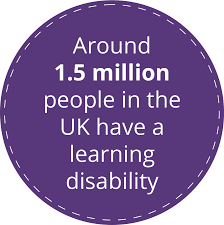It seems that I have been saying the same thing now for over 20 years. Parents with learning difficulties or disabilities have a compromised ability to understand and retain new information. This may be mitigated to some extent by help and support, but parents will not ‘get better’ and, depending on the degree of disability, may require help and support for the rest of their lives.
This poses particular challenges for parenting, which requires us not merely to be able to undertake efficiently and consistently a huge array of practical tasks around feeding, hygiene, clothing etc but also demands that we are able to respond -sometimes instantly – to an ever changing array of potential threats, on top of demonstrating emotional atunement and availability. ‘Good enough’ parenting is demanding for anyone. For those with learning difficulties who do not have access to a reliable support network, it is often impossible.
I have not been able to discern much of a shift in how these cases are managed. I continue to be involved in cases where the most basic and obvious of lessons that by now should be second nature to professionals about their interventions, were ignored.
So all that happens is that the care proceedings turn into a particularly cruel piece of theatre, where we pay lip service to the notions of fair proceedings but we all know what the eventual outcome is going to be. Often a considerable amount of money is simply wasted on supervising the parents without any apparent agreement about or understanding of what work would be done to help them increase their parenting capacity and who was going to provide it.
I worry that the proliferation of ‘Equality, Diversity and Inclusion’ officers over the past decade has had precisely zero impact on inclusion for disabled people. I suspect this is because that to include us often costs a lot of money and investment in physical infrastructure. Our inclusion is not performative, it is not secured by a rainbow lanyard or concern about pronouns.
So I thought it might help to set out here, as concisely as I can, what every professional needs to have in mind when working with parents who have learning needs.
- read the Guidance on working with parents with a learning disability. Internalise the five key components
- accessible information and communication
- clear and co-ordinated referral and assessment processes and eligibility criteria
- support designed to meet the needs of parents and children based on assessment of their needs and strengths
- long-term support, if necessary
- access to independent advocacy
- Be aware of particular opportunities for support in the community, for example that which is offered by Shared Lives Plus
- read the President’s Guidance from April 2018 about managing court proceedings involving parents with learning needs.
- Read Family Procedure Rules Part 3A and PD3AA. Consider the need for intermediaries or advocates at the earliest opportunity
- Read Re D (A Child) (No 3) [2016] EWFC 1
- Read A Local Authority v G (Parent with Learning Disability) [2017] EWFC B94
- Read Nottinghamshire County Council v XX and others [2022] EWFC 10, [2022] 4 WLR60
- XX, YY and Child H (Rev1) [2022] EWFC 10 confirmed that the Guidance on working with parents with learning disabilities MUST be more widely disseminated; social worker had been unfamiliar.
Further reading
Parents with Learning Disabilities/Difficulties
Court gives guidance on how to ensure fair proceedings for learning disabled parents
Research from the Nuffield Family Justice Observatory June 12 2024 – Babies in care proceedings, what do we know about parents with learning disabilities or difficulties? The Executive Summary states
Executive summary
This mixed method study, completed by the Institute of Public Care at Oxford Brookes University in September 2023, explored three important questions about parents with learning disabilities and learning difficulties in relation to care proceedings involving their babies.
- What proportion of care proceedings cases regarding babies (children under 12 months old) involve parents with learning disabilities or learning difficulties?
- What are the broader characteristics and circumstances of these parents?
- What are their experiences from the point of referral to children’s social care services through to the conclusion of care proceedings?
The study findings indicated the likely high prevalence of learning disabilities or difficulties among parents involved in care proceedings regarding babies. It underscores the importance of implementing both the Working Together with Parents Network (WTPN) 2021 Update of the 2016 Good Practice Guidance on Working with Parents with a Learning Disability (WTPN 2021) and the Best Practice Guidelines for When the State Intervenes at Birth (Mason et al. 2023) across public services in England.

